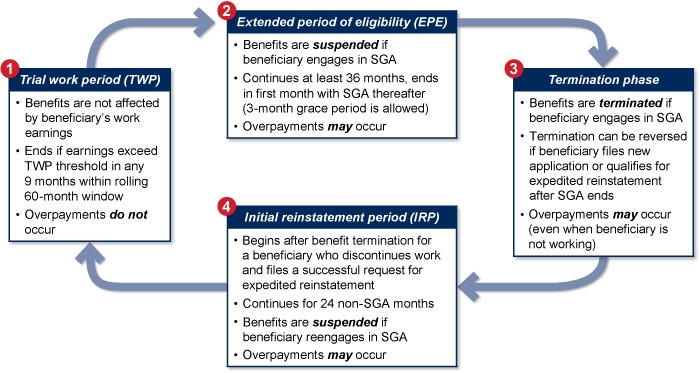What is SGA?

SGA stands for Substantial Gainful Activity. It is a term used by the Social Security Administration (SSA) to describe the level of work activity that is considered substantial enough to potentially disqualify an individual from receiving Social Security disability benefits.
The SSA uses the concept of SGA to determine if a person's work activity is substantial enough to demonstrate their ability to engage in gainful employment. If an individual is engaging in SGA, it is presumed that they are not disabled and therefore not eligible for Social Security disability benefits.
The specific income threshold for SGA is determined by the SSA and is adjusted annually. For 2023, the monthly income threshold for non-blind individuals is $1,310. For blind individuals, the threshold is higher at $2,190 per month.
It's important to note that the determination of SGA is not solely based on income. The SSA also considers the nature of the work, the number of hours worked, and the level of skill required for the job. Even if an individual's income is below the SGA threshold, if the work is determined to be substantial and gainful, it can impact their eligibility for disability benefits.
It's recommended to consult with the Social Security Administration directly or seek assistance from a disability attorney or advocate to understand how the concept of SGA applies to your specific situation and how it may impact your eligibility for Social Security disability benefits.
Comments
Post a Comment